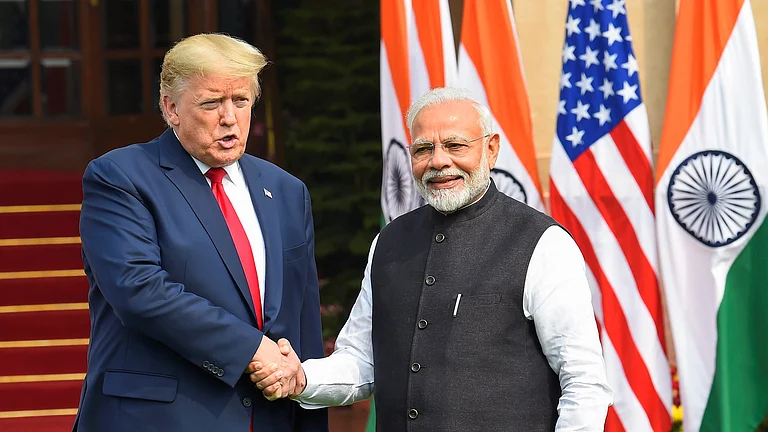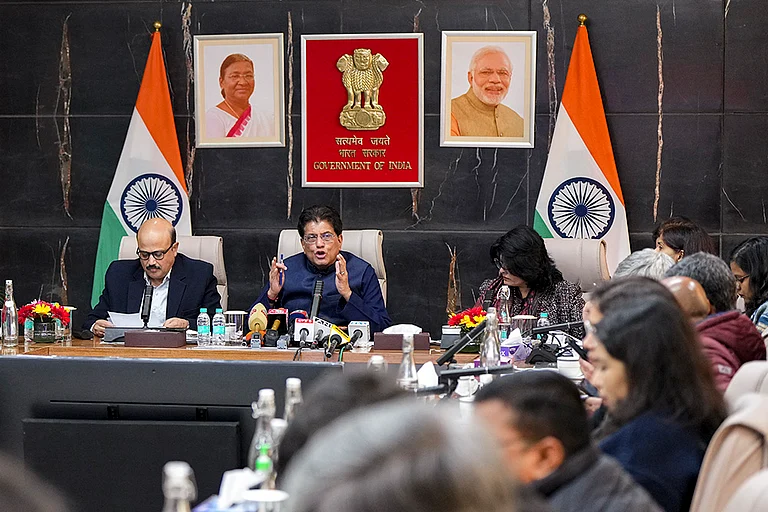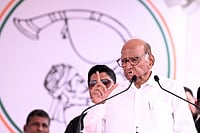The southwest monsoon may start withdrawing from the country between September 19 and 25, the India Meteorological Department said on Thursday.
Typically, the southwest monsoon makes its onset over Kerala by June 1 and covers the entire country by July 8. It starts retreating from northwest India around September 17, withdrawing entirely by October 15.
"Conditions are likely to become favourable for withdrawal of southwest monsoon from some parts of northwest India during the second half of the week (September 19-25)," the IMD said.
Since June 1, when the four-month monsoon season starts, the country has received 836.7 mm rainfall, eight per cent higher than the normal of 772.5 mm.
East and northeast India recorded 16 per cent below-normal rainfall while the other three zones -- northwest, central and south India -- recorded four per cent, 19 per cent and 25 per cent excess rainfall, respectively.
The India Meteorological Department (IMD) had earlier predicted above-normal rainfall this monsoon season, with cumulative precipitation estimated at 106 per cent of the long-period average of 870 mm.
It had accurately predicted below-normal monsoon rainfall in northeast India, normal in the northwest and above-normal in the central and south peninsular regions.
Punjab, apart from the northeastern states, Himachal Pradesh, the Union territories of Jammu and Kashmir and Ladakh and a significant part of Bihar have recorded deficient rainfall so far this season, according to the IMD said.
The monsoon is critical for India's agricultural landscape, with 52 per cent of the net cultivated area relying on it. Monsoon rain is also crucial for replenishing reservoirs critical for drinking water and power generation.


























